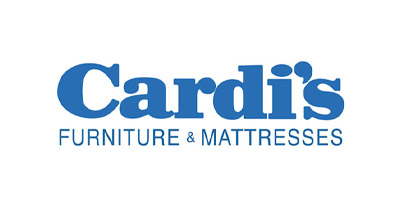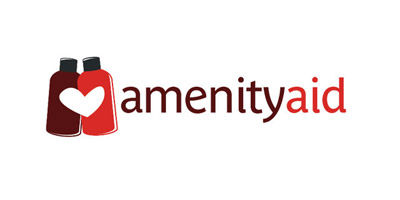VA Disability
Frequently Asked Questions
Review our frequently asked questions below or contact us at [email protected]
If the VA denied your claim, you have one year to appeal the decision. After this one year expires, you will need to submit “new and relevant” evidence to re-open the claim. Talk to your representative about your options to appeal the VA’s decision to ensure you receive the benefits from the earliest date possible.
VA disability compensation is based on your impairment in earning capacity, or how much your medical conditions as a result of service impact your ability to obtain or maintain substantially gainful employment (above the poverty line).
Generally, if a claim is granted service-connection it will be assigned a rating evaluation of either 0%, 10%, 20%, 30%, 40%, 50%, 60%, 70%, 80%, 90%, or 100%. The VA adds your service-connected conditions together using a combined ratings table, not simple math.
It is important to try to separate your symptoms relative to each condition. If service-connection is awarded, your rating will be based off of your symptoms relative to that condition. If your symptoms of a non-service-connected condition cannot be distinguished from those of a service-connected condition, the VA should apply the benefit of the doubt rule and consider all symptoms as if they are related to your service-connected condition.
In order to qualify for disability compensation, your claimed condition must have been caused or aggravated: (a) by active duty service, (b) by another service-connected condition, or (c ) by a VA Health Care Provider.
It depends. Your Social Security Insurance benefits may be reduced or offset by the amount you receive from the VA each month. Social Security Disability benefits, however, are not based on your income, so you may be able to receive both Social Security and VA benefits.
The process may take anywhere from 1 month to 5-6 years, depending on the number and the complexity of your claimed conditions. The initial application process generally takes 2-3 months, while the appeal lanes claim 120 days at the Regional Office level and 365 days at the Board of Veterans’ Appeals level in Washington, D.C.
In order to award disability compensation for a claimed condition, you must provide evidence of (1) a current disability or persistent symptoms of a disability, (2) an in-service event, injury, or occurrence, which occurred during active duty service, and (3) a nexus, or a medical link between your claimed condition and your active duty service.
As long as you submit evidence suggesting a link between your claimed condition and service, the VA must assist you in developing the evidence necessary to win your claim. Normally, this means the VA will order a Compensation & Pension Exam (Comp & Pen) to review your file and render a medical opinion as to whether it is as likely as not (50/50) that your claimed condition is related to active duty service and evaluate its severity so the VA can assign a rating between 0% and 100%.
A disability rating is measured in 10% increments and are meant to compensate you for the impact your service-connected conditions have on your ability to obtain or maintain substantially gainful employment (above the poverty line).
It depends. If you have multiple periods of service, the in-service event or injury must have occurred during an honorable period of service. This means if you received a dishonorable discharge or a discharge under other than honorable conditions, you may need to have your discharge status overturned or point to another period of honorable service before you would be eligible to qualify for VA disability benefits. An honorable period of service includes a general or medical discharge or a discharge under honorable conditions, as long as the event or injury was not the result of willful misconduct.
Your attorney and VA Claims Advocate will contact you throughout the process to discuss developing the evidence necessary to get you the disability compensation you deserve. Be sure to check your email regularly for updates.
Probably not. You may elect to attend a video-conference hearing before a Veterans’ Law Judge as part of your appeal, but your attorney will be there to walk you through the process and present everything to the Judge if necessary.
A licensed VA Claims Advocate or VA attorney knows the ins and outs of the VA disability compensation system, so they know what to expect and what evidence you need to win your case. A VA attorney may be able to provide medical evidence to support your claim on appeal, explain standard correspondence from the VA, and may be able to address claims you may not have considered.
Monthly benefit awards range anywhere from $142.29 per month to $3900 or more each month, depending on the severity of your service-connected conditions, or how much they interfere with your ability to obtain or maintain substantially gainful employment (above the poverty level).
It depends. Generally it takes 2-3 months from the time you file an initial claim until the VA issues a decision on your initial claim. However, if your application lists several claims, it may take longer to develop the evidence for each.
OSDRI works on contingency, meaning we don’t get paid unless we are successful on appeal. We offer professional assistance on your initial claim at no cost to you. Once a decision is issued, an experienced attorney will review the decision and reach out to you to discuss appealing the decision, if necessary. If we are successful on appeal and you are awarded benefits, the VA will withhold 20% of your retroactive award for the attorney fee, to be released in 65 days. We do not charge at all for our assistance in your case before a decision is issued.
No. If we are successful on appeal (after an initial decision is issued), 20% of your retroactive award will be withheld by the VA and an attorney fee decision will be issued. We will receive the fee 65 days after the attorney fee decision is issued.
No. If we are successful on appeal, the VA will withhold 20% for the attorney fee, and nothing from your monthly benefit amount going forward.
Yes. If your appeal is successful, you will receive a lump sum retroactive award for the difference between the amount the VA should have been paying you each month less the amount you were paid from the date of your application through the present.
If you are awarded VA benefits, you can enroll in direct deposit and the VA will automatically deposit your monthly benefits on or around the 1st of each month. If you do not have a checking account, the VA will send you a debit card and it will load your monthly benefit onto the card each month.
If your claim is denied, an experienced VA attorney will review your choices to appeal the decision and work with you to develop the evidence necessary to win your claim on appeal.
Can any supportive evidence from my doctor be used? What if I only receive treatment through the VA?
Yes! The VA must consider all evidence you submit in support of your claim, including lay and medical evidence. If you receive treatment through the VA, you can ask your physician to provide a statement in support of your claim. Whether you are treating at a VA Medical Center or with an outside provider, your physician’s assistance is discretionary.
No. But we will prepare you for what to expect and what to bring with you the day of the exam. It is extremely important that you attend your scheduled Comp & Pen Exam, as the VA can deny your claim if you fail to attend.
If you cannot attend your scheduled Comp & Pen Exam, it is extremely important that you contact the Comp & Pen office to reschedule the exam. If you fail to attend a scheduled Comp & Pen Exam, the VA may deny your claim.
The VA will request copies of your private treatment records using a VA contracted facility called DOMA at no cost. If you can obtain a copy of your private treatment records, talk to your representative about the best way to transfer that information to the VA.
If you die while your claim or appeal is pending, your spouse may be eligible to substitute in your place and continue your claim for disability compensation. In the event your death was caused by one or more service-connected conditions, your surviving spouse may be entitled to Dependency and Indemnity Compensation (DIC). For more information, contact us at (401) 373-4730.
If you have a combined rating of 30% or more ($435.69 each month), you may be entitled to additional compensation for dependent spouse, dependent children, and/or dependent parents. For more information, contact our office at (401) 373-4730.
TDIU stands for Total Disability Based on Individual Unemployability. It’s basically a shortcut to 100% for certain veterans who are unable to work because of their service-connected conditions, but their service-connected conditions do not add up to a 100% combined rating.
The VA should automatically considered for TDIU if:
- You have one of the following:
- at least one service-connected disability rated 60% or higher, OR
- two or more service-connected disabilities, at least one disability rated at 40% or more, with a combined rating of 70% or more, OR
- you are unable to maintain substantially gainful employment as a result of service-connected disabilities and
- You’ve applied for an increased rating; and
- There is evidence of unemployability in the record.
It depends. The VA may grant TDIU when a veteran is unable to secure or follow a substantially gainful occupation due to their service-connected disabilities. While to most the words “substantially gainful occupation” may seem like meaningless jargon, the courts have determined that these words specifically mean employment where the Veteran earns more than what the current federal poverty level is for an individual. Right now, the Federal poverty level is about $12,000. This means, an employed Veteran who earns $12,000 or less per year, may be eligible for TDIU despite the fact that they are employed.
In some case, even if a Veteran is employed and earning more than $12,000 a year, they may still be eligible for TDIU if the VA considers the Veteran’s employment to be in a “protected environment,” also known as sheltered work environment. While the VA has not provided a definition of “protected environment,” generally, if a Veteran can show their service-connected injuries prevent them from consistently performing their duties in a reasonable time and the employer has made accommodations for the Veteran, the employment will be considered to be in a “protected environment.” For example, a veteran who is service-connected for PTSD and works as a fisherman would be considered to have been accommodated by his employer if they allow him to forego fishing trips if he does not want to go. In this case, the accommodation suggests that the veteran works in a protected environment and may be entitled to TDIU.
To be eligible for either TDIU or SSDI, a veteran must generally (there are some slight exceptions) be unable to work due to physical and/or mental disabilities, but there are also some important differences. For example, the VA only considers a veteran’s service-connected disabilities while SSA considers all disabilities. Additionally, a veteran may be eligible for TDIU if their disabilities keep them from doing their past work, while for SSDI, being capable of doing any job may be a disqualifier. Finally, the VA cannot consider a veteran’s age for TDIU, while age is one of the most important factors in an SSDI claim.















